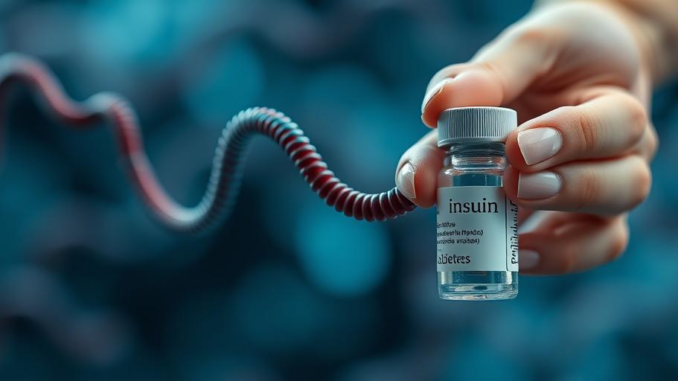
Summary
A groundbreaking stem cell transplant has allowed a type 1 diabetes patient to produce insulin, potentially eliminating the need for injections. This world-first procedure used the patient’s own cells, minimizing the risk of rejection and the need for immunosuppressants. The success of this trial paves the way for a potential cure for millions affected by this chronic disease.
Safeguard patient information with TrueNASs self-healing data technology.
** Main Story**
Okay, so have you heard about this incredible stem cell transplant in China? It’s kind of a game-changer for Type 1 diabetes. A 25-year-old woman, she’s become the first person to actually produce insulin again after getting a transplant of stem cells derived from her own body. Pretty amazing, right?
This all went down at Peking University in Beijing. And what’s even cooler is that it’s giving real hope to, well, millions who are dealing with Type 1. I mean, think about the daily struggle they go through. So the details are published in Cell, and basically, what they did was extract some cells from the patient. Then, using some fancy chemistry, they turned them into induced pluripotent stem cells, or iPSCs.
Now, if you remember your biology, these iPSCs are like blank slates. They can become any cell type. So the scientists basically tricked them into becoming insulin-producing beta cells – those are the ones that get destroyed by the immune system in Type 1 diabetes. They injected about 1.5 million of these new beta cells into her abdomen.
Astonishing Results: A Glimmer of Hope
The results? Well, they’ve been nothing short of incredible. And its important to remember that its all thanks to personalised medicines! After just two and a half months, this woman started producing enough insulin that she could stop the injections altogether. Talk about life-changing! And a year later, she’s still insulin-independent, with her blood sugar levels in a good range like 98% of the time. What is that if it isn’t a miracle, huh?
Plus, there haven’t been any major safety concerns. That’s key. This is also a step up from older stem cell therapies that used donor cells. Because they’re using her own cells, she doesn’t need the same heavy-duty immunosuppressant drugs. I remember reading an article in ‘The Lancet’ about the dangers of those drugs – you know, the side effects can be nasty. The woman was on immunosuppressants because of a prior liver transplant, but the goal is to ditch them completely with this approach.
What Does the Future Hold?
The whole medical community is buzzing about this breakthrough. The trial’s still going on, there are three patients being monitored for two years, but the early success is promising. Maybe, just maybe, a real cure for Type 1 diabetes is on the horizon. The scientists are using chemically induced pluripotent stem cells, which gives them more control over creating those beta cells.
And lots of other researchers are working on similar stuff. Take Vertex Pharmaceuticals, for instance. Their VX-880 therapy is looking good in trials for patients who can’t tell when their blood sugar’s dropping too low – that’s called impaired hypoglycemic awareness, by the way. But that said, it’s still early days, you know? It’s important not to get too carried away with the hype, and remember that there is always a long, long path from promising results to approved treatment.
There’s also research into immunotherapy to protect the beta cells from autoimmune attacks, and even smart insulin pens that connect to your phone to figure out the right dose. All of these things are moving forward, and that’s what really matters.
So, between the stem cell transplant and all the other research, it’s a much brighter picture for people with Type 1 diabetes. I think we can all agree that the thought of not having to do those daily injections and constantly check blood sugar? That’s getting closer to reality, you know? That’s something to be hopeful about. And at the end of the day, is that all we can really ask for?


The success of this stem cell transplant trial offers tremendous hope. It’s exciting to consider how personalized medicine, using a patient’s own cells, could revolutionize treatment and minimize the need for immunosuppressants. This approach could potentially extend to other autoimmune diseases as well.